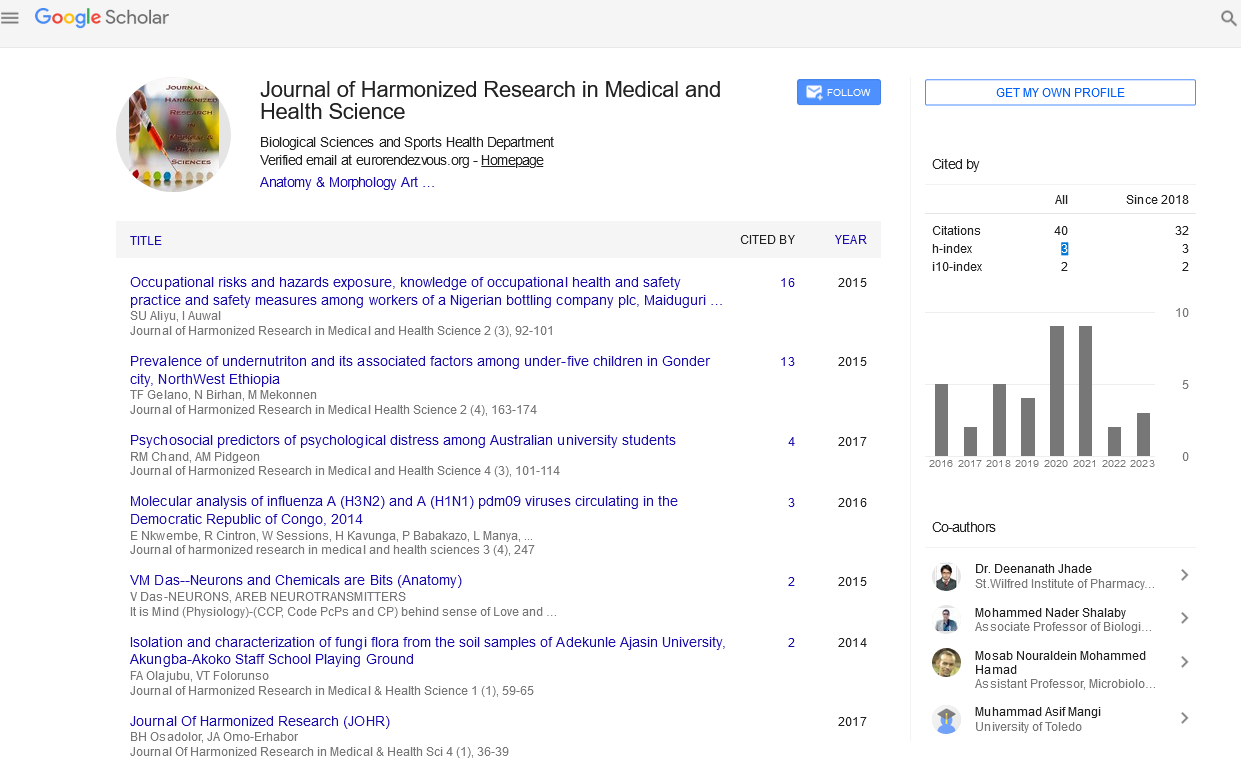A STUDY TO ASSESS THE EFFECTIVENESS OF FOCUSED GROUP EDUCATION ON AWARENESS REGRADING EMERGENCY CONTRACEPTION AND ITS ILL EFFECTS AMONG ADOLESCENT GIRLS IN SELECTED AREAS OF MORADABAD, U.P.
Abstract
Author(s): Abhilasha Donald, Dr. N.V. Muninarayanappa, M. Hemalatha Prabhu, Nageshwar V.
Background of the Study: Adolescent girls have less knowledge on emergency contraception and its ill effects, but it can be increased through focused group education. Aim: The main objective was to d etermine the level of knowledge on emergency contraception and its ill effects. Method: Non randomized control group design. Study was conducted in selected areas of Moradabad. Sixty samples were selected using purposive sampling technique. Self-administered questionnaire including demographic Performa and structured knowledge questionnaire was used to assess knowledge regarding emergency contraception and its ill effects. Results: The result of the study revealed that in experimental group pre-test, 83.33% sample had inadequate knowledge and 16.67% had adequate knowledge whereas, or the sample in control group pre-test, 76.67% had inadequate knowledge and 23.33% had adequate knowledge. After focused group education post-test score of sample in the experimental group was, 0% had inadequate knowledge and 100% had adequate knowledge, whereas for the sample in control group the post-test score was, 83.33% had inadequate knowledge and 16.67% had adequate knowledge. Interpretation and Conclusion: Significant difference reported between pre-test and post-test level of knowledge among adolescent girls of experimental group. There was statistical significant association between the pre-test level of knowledge with their certain demographic characteristics like age, type of family, occupation of mother, domicile area and source of information at 0.05 level of significance. Hence, the present study suggests necessity to spread awareness.










